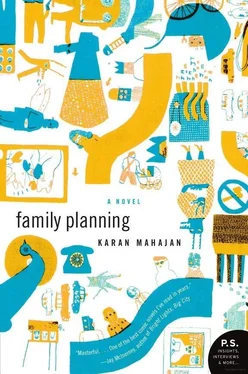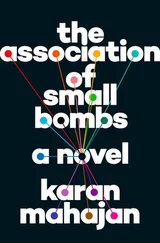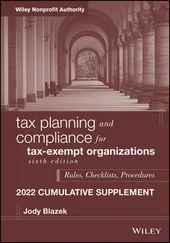He was unusual in that respect: a minister who actually had a skill-set that rivaled that of the engineers doing his bidding. In his first months, down in the mosquito-haunted basement of the PWD building, he had laid out the Delhi Master Plan, smoothed the predictably yellow document with two formless, coral-trapping paperweights, and superimposed his vision on it with the lightest of 2B pencils. This was his bid to defeat fifty years of slipshod Delhi Development Authority planning with one grand gesture; he transferred all the civil servants that argued with him; he bullied his witty Under Secretary into excavating the secrets of the ancient bureaucracy. He greeted truant employees with giant pay-cuts. He threatened to resign when needled with political interferences. The newspapers and magazines— India Today, The Times of India, The Hindu —all those publications that hoped for a great, intellectual, middle-class hero, trumpeted his virtues. For them, the suave black-haired minister was the new Lutyens. He was an antidote to the sleepy ninety-year-olds who ran Parliament. He wore a suit and tie and had an IIT degree and was proficient with e-mails and the Internet and had an American brashness about him that made him seem like a holdover from Rajiv Gandhi’s technocratic cabinet — only with bigger, better brains. He certainly had a plan. He wasn’t waiting for the forced trigger of an Olympics or Asian Games to get the city stenciled into shape. He wasn’t stacking half-hearted terraces of tar over the city for temporary respite. He was building a system that seemed positively futuristic, a brilliant aside to the National Highway he was also implementing. Tracks of elevated road adding extra brio to the tired Ring Roads. Gurgaon and Noida brought within twenty minutes of IIT campus by a miracle. Squat malls zoned in the space left free beneath the cacophonous, if numbingly constant, roar of traffic on the flyovers.
Individually taken, each flyover was a work of architectural genius (shaped like tigers, elephants, bicycles, and even a rhino), built at such an unusual elevation that beneath it one could create tiny cities — malls and gardens and fairs massively shadowed by concrete.
Reality was the ultimate bulldozer. Political pressures and jokers like Yograj had contorted the plan into a shape that was far from perfect. The paper model in Rakesh’s study at home presented a severely shrunken idea of the problems that awaited Delhi. Yes, traffic would be eased, but too many flyovers were being erected, the city was being randomly suffocated with concrete, the horizon had collapsed under a view of second-floor balconies and clotheslines fluttering with underwear, every politician in Delhi wished to distract his disappointed voters with a giant, noisy, jing-bang of modernity, the flyover. For some reason, no one doubted the sandstone sexiness of an overpass. People believed in them with a preindustrial innocence. They earnestly put up with months of noise and pollution if it meant fast transit in the future.
Only, of course, transit wouldn’t be much faster. It’d just be an uglier city.
Now Rakesh bitterly perused the e-mail. He’d suppressed his disappointment over the Flyover Fast-Track because he knew that idealism itself was a sort of political immaturity. Sending in such a fiery resignation would curtail his chances of advancement in the party. The SPM would not tolerate such blatant rudeness. She was more goddess than woman. It was a ritual in the party to drink the rosewater she’d used to clean her feet. During cabinet-shuffle-time ministers and MPs pitched tents in her garden to stress their loyalties. So what if the party was at an all-time low. So what if it was losing all the state polls and its popularity rating was dismal. He ought to soften his language. He ought to remember that this e-mail was written specifically with Arjun in mind….
What the hell — he pressed SEND.
“Darling, I’ve resigned,” he said to Sangita on the phone. “Tell the children I’ll be coming home for lunch. But don’t tell them I’ve resigned, obviously. You know how they become when I tell them. They will want to know everything. Then they’ll cry. You’ve raised true drama queens.”
“Okay, ji.”
Mrs. Ahuja was blasé. She had good reason to be.
Mr. Ahuja put down the phone, his head spinning. There was the question of what he would say to Arjun about Rashmi. For a decade, Rashmi had been receding from his memory. She had become a swirl in the sink, a hot-blue flame that appeared on a gas stove, the smell of a tissue as it took away ribbons of snot, the static in someone else’s cell phone, a pencil of memories sharpened into nothing. Words: Darling, Kanjeevaram, Tragic Eyes . But last night, his pajama drawstrings dangling down in a huge comic bow, Rakesh had needed her body . He had needed her entire being to be transposed swiftly beside him — hologrammed over and around Sangita’s pregnant form, a dose of beauty to undo his embarrassment — but she was gone. And it was Arjun’s fault that he had had this revelation. It was Arjun’s unawareness that killed Rashmi once and for all.
ARJUN WAS SECRETLY PLEASED to hear from the guard that his father was coming home for lunch. This meant a later meal and more time to organize the concert. He kicked off his shoes and watched the insoles pop on the front verandah of the house. The house—12 Modi Estate — was a squat bungalow that always smelled of the rainy season, its many awnings and verandahs making it a haven for loiterers, right-hand men, chamchas, servants, maids, shawl-sellers, bored bodyguards; Arjun walked past the walkie-talkie wielding lot.
The door of the house opened into a massive wind tunnel of fans and gray floors. The drawing room was congested with kids — its horrible maroon color scheme gave it the aspect of a dingy beauty parlor. Neither Mama nor Papa had good taste, Arjun realized. They had no interest in decoration. Instead, a flood of giving had besieged the Ahujas since Mr. Ahuja made minister, and the house had been furnished with favors — the mismatched sofas and oddball paintings and the giant statue of a naked British boy in the front saying more about the taste of the givers rather than the takers. Because, as Arjun knew, his Papa took everything. He was blissfully indiscriminate. Eventually, he begged these favor-seekers for fungible essentials, and so baby products and creams and clothes came pouring in like predated dowry. The toys and clothes for the older children Mr. Ahuja made a point to donate to slum-dwellers so his brood could stay clear of being spoiled— they are at high risk of becoming brats , he’d told Arjun. Of course, he made his children do the giving; giant feasts were organized in the back garden where local sweepers and workers were ladled food from five giant containers by the Ahuja children — an Ahuja meal on a larger scale, basically.
Arjun wondered if Mr. Ahuja wanted babies only so he could eat away at the endless supply of gifts and sweets and food.
He found the theory highly plausible.
He was humming a song and washing his hands in the bathroom when Mama knocked on the door, peered in, and said, “Have you seen? He died.”
Then she left. Was this her way of apologizing for last night? Arjun finished swilling the water and watched himself in the mirror as he spat white foam. Everyone always said he looked like his father, but today he was all Sangita, the handsome pimple on his forehead like a bindi, his lips loose and sullen. He was almost amused by the idea of his mother being a sexual being: he’d taken for granted that the number of children his Mama and Papa had was equal to, if not more than, the number of times they’d had sexual intercourse (they had twins). Last night, then, completely shattered the part of him that’d been taught — mainly by America — that sex was the spontaneous transfer of fluids between very attractive, naked, blond people. Clearly, Mama and Papa were (still!) horny for each other. Clearly, their sardonic disinterest in each other was repressed magnetism. Clearly, last night he’d walked in on an act of passion.
Читать дальше












